THE WEST AND RUSSIA
RUSSIA, EUROPE AND NATO – IS THERE A WAY OUT OF THE CRISIS?
(Comments at a Conference jointly organized by IIP and Croatian partners in Zagreb on the „The West and Russia: Challenges and Opportunities“)
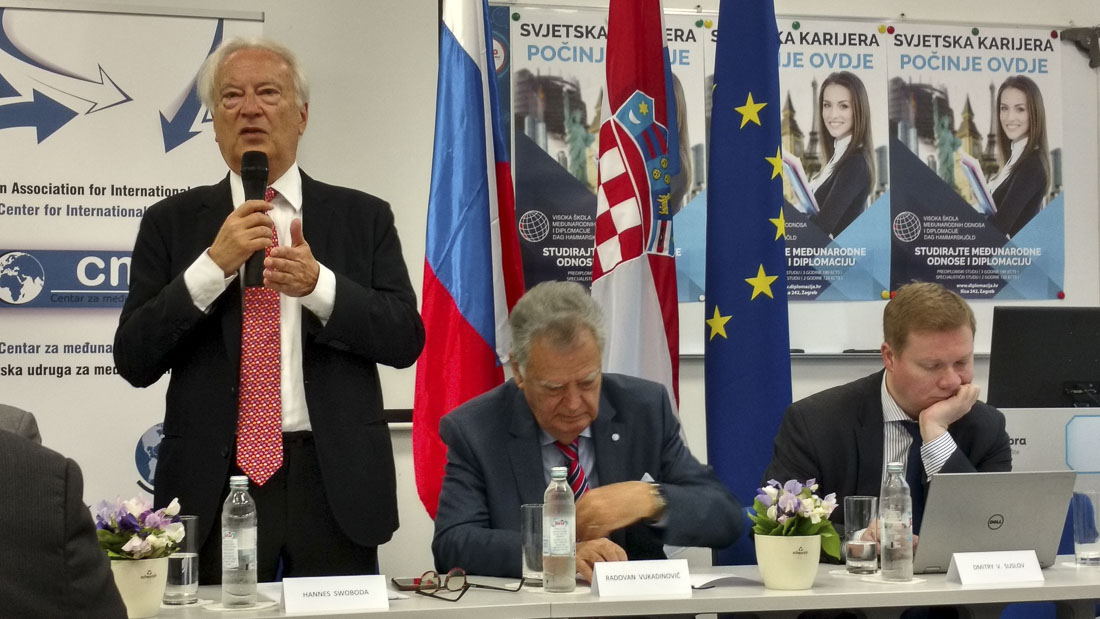
The origin of the crisis
There is no doubt about the tense relations between EU and Russia and even more between NATO and Russia. There are many reasons for the deterioration of the respective relations. Unfortunately; the possible peace and cooperation dividend after the collapse of the Eastern Block and the Soviet Union has not been consumed. Too much has it been seen outside Russia as a victory of the „West“, it’s values, its economic system and its military force. Francis Fukuyama expressed it most clearly: we arrived at „The End of History“. Even in Russia many agreed with that interpretation of history. But things developed differently.
The extension of NATO and of the European Union came to a halt. Russia became more assertive – some would say, more aggressive, due to economic stabilization – on a low level – and due to Putin’s stabilization of power. Putin gave some hints, that he would not tolerate a stronger expansion of the „West“ and especially NATO. The „border“ conflicts concerning Georgia and Moldova were already signs of resistance to a strong interference into Russia’s „near abroad“ – its neighbourhood. But the climax came with the foreseen agreement between EU and Ukraine and the Maidan revolution which toppled President Yanukovich.
Was the Ukraine crisis avoidable?
Many ask today if the re-approchement between the EU and Ukraine could have been handled with more care and diligence. Indeed, from the hindsight the answer must be yes. But one must be honest and recognize that the Ukrainian government of President Yanukovich and Prime Minister Azarov were underlining, that the Ukraine wanted to sign the Deep and Comprehensive Trade Agreement with the EU. The chief negotiator and confident of President Yanukovich, Klujev made it very clear also to me personally. And Russia underlined that this is an issue between Ukraine and the EU – until they threatened the Ukrainian leadership with economic sanctions just before the Vilnius summit and the signing of the agreement.
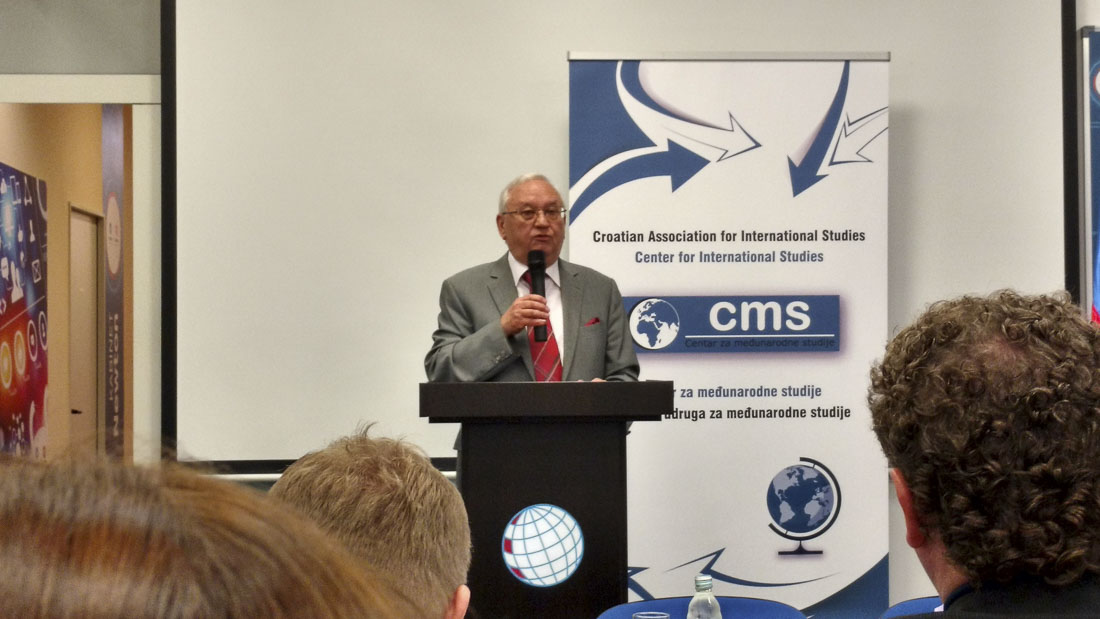
This lead to a U-turn of the officials in Kiev/Kyiv which raised opposition in Kiev/Kyiv and brought the Maidan revolution to a start. It was difficult for the EU’s foreign ministers in Kiev/Kyiv to impose a compromise between the government and the revolting people on Maidan. Probably it would have been wise to make it clear to the Maidan representatives that a compromise will be necessary. But even if this would have happened it is unclear if and how long such a compromise would have survived the basic conflicts inside Ukraine and between the reform oriented forces in Ukraine and the Russian government in the longer run.
The lost opportunities
The opportunity for a peaceful transformation of Europe and a new comprehensive security architecture has been missed already years before the crisis in Ukraine. The breakdown of the „East“ has been interpreted by the „West“ as a clear victory of the Western, capitalistic system. The principle how to proceed in the EU and inside NATO has been: the winner takes it all. NATO invited Russia to join a common NATO- Russia council but without a possibility to influence the basic strategy and decisions of NATO, which misses the basics of true cooperation.
The EU offered Russia different forms of cooperation and financial support and finally a „Modernization Partnership“. The basic idea was to change the political and economic structure of the country. One could call that as a wish for regime change. But no direct interventions took place, instead the EU wanted to use its transformative power to create a neighbourhood which would slowly adapt to the basic rules and behaviour the EU had in mind for a common Europe. Common meant that all European countries should orient themselves on the EU model. Russia was seen at maximum as a junior partner.
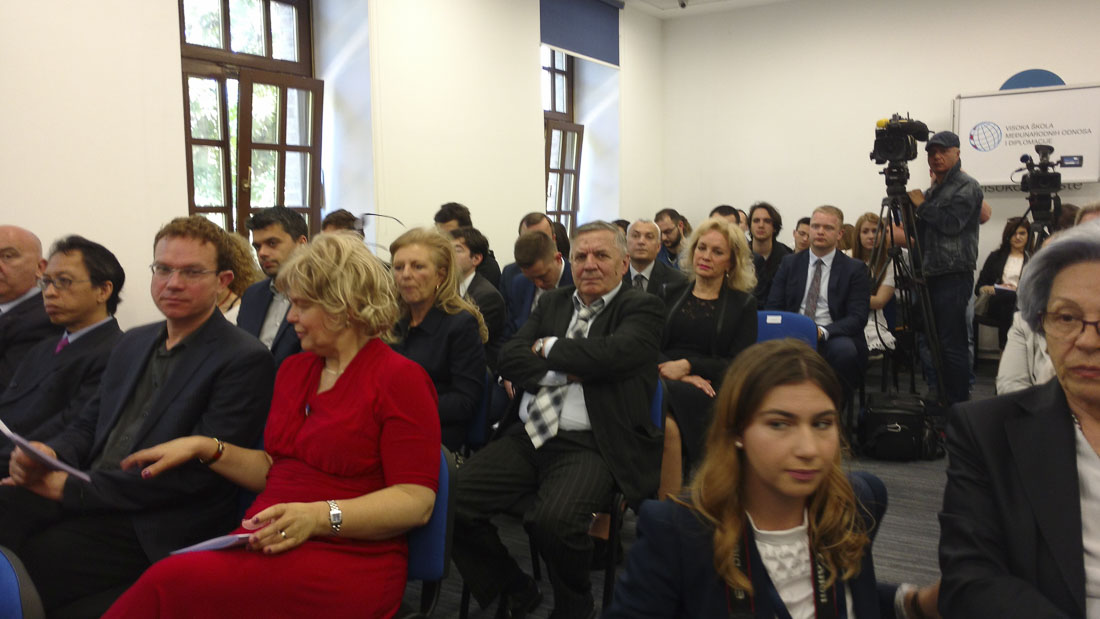
NATO and the EU wanted to establish a wider Europe not on basis of mutual recognition and/or by finding a new Europe on the basis of a compromise. They just wanted to extend its communities and rules to other countries and hoped, that in the long-term, Russia would adapt to that new wider Europe. For a while that was also accepted by Russia, but more and more the opposition in Russia as well as Putin himself was increasingly opposing. The planned Trade Agreement with Ukraine and the conclusion of such an agreement after the Maidan revolution was the straw that broke the camel’s back.
For the EU an alternative strategy was hardly possible. The EU and its founding principles were oriented not on creating a new traditional power block and system but had and have post-nationalistic structures in mind. The transformation of Europe from very often antagonistic nation-states to a federation of states – or an entity sui generis- was not thinking in traditional power terms. Its founding myth is opposed to conferences like that in Yalta or even the Vienna Congress. Even the Helsinki conference was interpreted as a transitional agreement and the final act of European transformation could start. And all the countries which have been dominated by the Soviet Union/Moscow were especially keen to go that new way and to be included into the new form of Europe – albeit with some reservations concerning their own sovereignty.
One could say, that the two principles, the extension of the ’new‘ post- nationalistic Europe on the one hand and the preservation of Russia’s zone of interest and influence on the other hand were irreconcilable. A clash was to come sooner or later. In some way, a fresh start would be necessary to create conditions to a peaceful structure for cooperation. But that must be based on the new facts including on compromises concerning the rules and regulations of the EU.
The new realities
Europe and the Eurasian continent are not in the same position as some ten years before. The European Union is no longer the only integration project. The Eurasian Union (EAU) heavily promoted by Russia and the „One Belt, one road“ (OBOR) initiative have been added and will play a key role in defining the future of Europe. At different conferences in the framework of the OSCE the question of possible enhanced cooperation across Europe have been raised. Some of these conferences have been organized by the Vienna Institute for International Economics (WIIW) – with the biggest one in Linz/Austria – asking for possibilities to create a common economic space between Vancouver (or at least Lisbon) and Vladivostok. Thinking about a big idea of a wider space while the local connectivity across crisis regions is more and more cut, is unfortunately not very realistic- not in the short run.
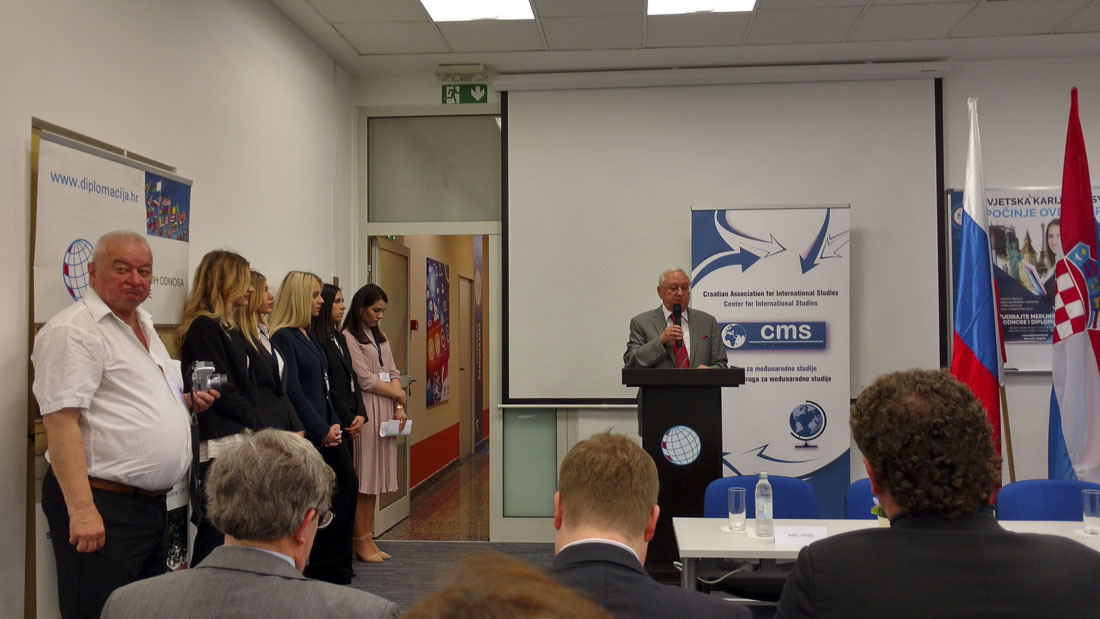
Probably a parallel policy of trying to keep local and regional connectivity alive – in Ukraine, Georgia and Moldova – could design a great strategy for Europe – and possibly would be helpful. But even the greater design needs some pragmatic and practical steps. One could be to enhance the cooperation between the Eurasian Union and the EU. With all its weaknesses, the Eurasian Union is a fact. It just started and is concentrated on the economic cooperation. But that could be an advantage for closer cooperation in leaving aside the political differences. As the Eurasian Union does not consist only out of Russia, the other members could be happy to have the EU and its member states as partners. EU and the EAU will not be able to agree on all rules and regulations, but rapprochement – step by step – could be envisaged.
In the meantime, Europe got a new player: China. Since several years China is actively looking for strong links with many European countries. And the One Belt, One Road initiative could also – without institutions – create new links between China on the one hand and Russia, Central Asia, the Caucasus and the European Union on the other hand. But these new connections could also have integrational effects and results by enhancing infrastructure links across Europe. The biggest problem for the success of this Chinese initiative is the fact, that it is a Chinese initiative and that in spite also of the recent multilateral conference in Beijing, the ownership is not – not yet – a common one. But only if it is designed as one of mutual interests and cooperation it can be successful and a contribution to a common economic space.
What is the interest of Russia?
Russia’s interests seem to be a twofold: independence with orientation towards Europe and Asia. The pivot towards Asia, proclaimed by President Putin is not a clear turn away from Europe and the European Union. And as we have seen China, the biggest possible partner for such a pivot is itself interested to strengthen the ties to Europe including the European Union. But Russia is not ready to be encircled by the EU and especially NATO. It is looking for a partnership of equals. It is true that Russia is not an equal in economic terms and there are many differences concerning values and principles, but neither NATO nor the EU can impose its values and principles on Russia as the military and especially nuclear power of Russia gives it strength and influence beyond the economic power. Integration into a common European Project cannot be done by imposing and enforcing but by inviting and elaborating some common rules based on respect. Yes, Russia has violated some agreed rules and agreements including international law. But so have the US and some European countries in Iraq but also in Libya when they went beyond the UN mandate. This is no excuse but this should help to find a way out of mutual sanctions regimes and create the climate and conditions for a fresh start.
Geopolitics is not finished yet
Anyway, to wait for common values and principles would endanger peace and stability in Europe. To accept that a violation of international law could create similar dangerous situations, is essential. A way of restarting talks about a modus vivendi in Europe with mutual respect and trying to find areas and forms of cooperation is possible and should be found. Russia wants a seat on the table when basic decisions are taken. That does not mean they should have a veto right. But they should be involved in an instructive way. Due to the lack of such possibilities they involved themselves in a destructive way.
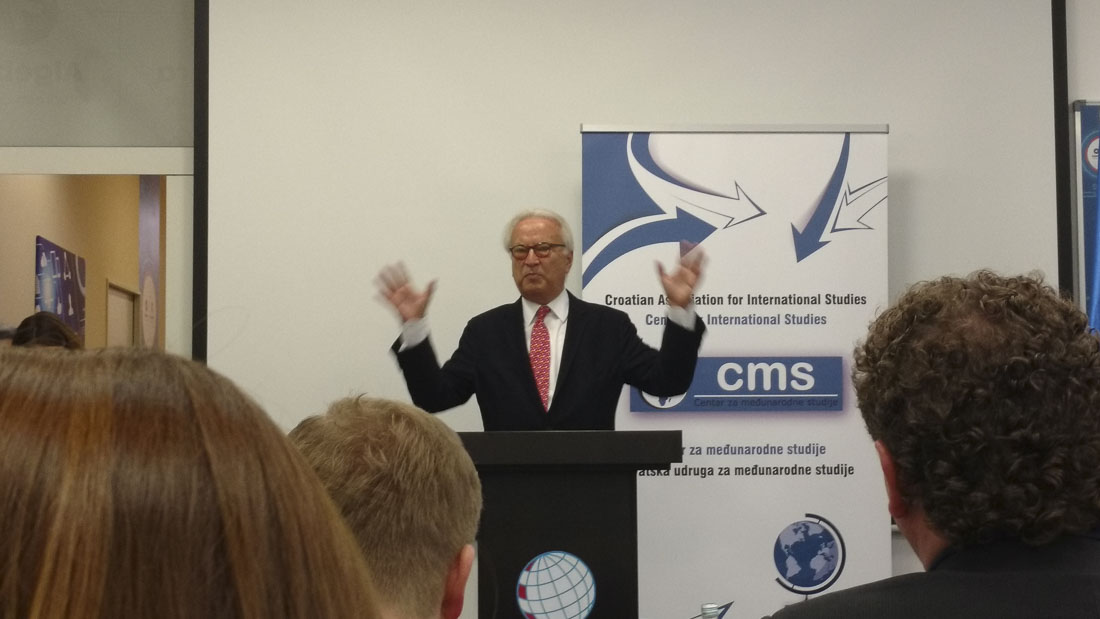
It is not an easy task for the West to recognize the basic right of all – European – countries to choose the organizations they want to belong to and at the same time to recognize and consider the geopolitical implications of such choices like joining the EU and especially NATO. Geopolitics is not yet an issue of the past, even though the EU would like to see a different world. But as some of our critical neighbours are not yet ready for joining the EU and even more NATO anyway, a balanced pragmatic approach should be possible. In the meantime, talks with Russia could lead to a more acceptable solution for both sides. We should not give Russia a veto right for the development of the EU, but in the framework of a new all-European security system – also from Vancouver to Vladivostok and even beyond – many Russian concerns could be met. The European Union must also start to think in geopolitical terms – not in the Russian way, but according to its own interests.
A pragmatic approach towards the Russian Federation can be criticized of forgetting and even undermining values and principles. And it is true, that some experts are happy that President Trump does not mention values in his speeches, for example recently in Saudi Arabia. They regard this as a good sign of refraining from regime change. And that may help the US and or Europe also in dealing with Russia. But one could and one should speak also about values and principles without thinking about or promoting regime change. Only to think about interests including interests e.g. to sell weapons the „West“ would lose a lot of legitimacy and appeal by people suffering by authoritarian and dictatorial regimes. Values can also promote a dialogue with clear messages – without asking for regime change. To respect geopolitical interests and at the same time to represent basic values of human rights is not a contradiction.
The Ukraine crisis as an obstacle?
In this respect the crisis in Eastern-Ukraine is mentioned as an obstacle towards an agreement with Russia again and again. The question if first the Ukraine problem has to be solved or if the long-term perspective for a security system in Europe has to be first designed and agreed upon is like the question which comes first, the hen or the egg. We need a common and parallel approach. However, ways must be found to stabilize the situation in the occupied areas of the Donetsk and Lugansk. It is also important not to the situation in Crimea, but the nearly daily killings and the awful situation for the local populations in the Donbass should be dealt first and most urgently.
The condition of fulfilling and implementing the Minsk agreement will not be met in the near future. During a recent discussion at the International Institute for Peace with participants from Western-Ukraine and Lugansk we could clearly see: both sides are unwilling to start with the implementation without guarantees, that the other side will follow immediately. Both sides find excuses why the implementation of the Minsk agreement is not yet possible. In the meantime, due to the cut of nearly all economic links the separation between the occupied and the government controlled areas of Ukraine is increasing and not reducing. Unfortunately, the right-wing forces in Ukraine pushed the government and President Poroshenko more and more into a line of cutting these economic links. Connectivity is not on the agenda of either side. The consequence will be that Ukraine is – step by step – re-orienting its economy towards the EU and the economy of the non-government-controlled Areas (NCA) is more and more leaning towards Russia. Some hopes for continuing basic links are connected with the visa – free traveling and the participation in some EU programs like Erasmus for all Ukrainians wherever they live.
New ideas to lift the mutual sanction regimes should be looked for. The sanctions did not really change the situation and it did not help any country. Of course, they hurt some industries and some part of the agricultural sectors strongly. But all the countries found ways to overcome and surpass them. Some third countries offered ways of keeping up trade between the countries inside the sanction regimes and some industries were even happy, as sanctions forced them to restructure and improve their productivity. But sanctions are not in any way helpful to build bridges between Ukraine and Russia and between the EU and Russia.
Areas of EU-Russia cooperation
Besides the direct economic cooperation between the EU and the EAU there are other fields of possible cooperation. In addition to a revitalization and restructuring of the NATO – Russia dialogue within the OSCE could play a bigger role in developing a new security structure for a wider Europe. Russia is for the moment not very interested in a stronger role for the OSCE but that could change with a general new attitude of the EU and the US towards Russia.
Another important field of cooperation would be the stabilization of the Middle East. Russia and the EU do not have the same vision for the Middle East. The support for President Assad and his regime can only be seen very critically. But this support, as cynically and morally negative as it is, could lead to a solution, if Russia would put pressure on Assad to be ready for a compromise and a transition period for him in power. Both Russia and the EU are interested in a defeat of ISIS and other radical Islamists. The recent Trump visit to Saudi- Arabia and Israel with his anti – Iran tactic delivered not a viable strategy. Iran is not an innocent power but nor is Saudi Arabia and neither is it Israel if we look at the peace process with Palestine. Europe should continue to work on a cooperative strategy with all forces in the Middle East and with Russia as with the US. A one-sided strategy is not helping to stabilize our neighbourhood.
The EU does not have the choice of talking, negotiating and cooperating with friends alone. In many respects, the Russia of today is not a friend, but it is not an enemy either. It is more a competitor than before the crisis in Ukraine. We should not have any doubts about that. But because of that we must find ways of better communication and of creative thinking about a common future in and around Europe. That is not a soft line, where the West is accepting all moves and aspirations of a „revanchist“ Russia, as we can read very often in papers prepared by experts close to NATO- especially from the US. It would be a concept which is putting pragmatic self-interest before ideology. And it is a line which is not dictated by the (US-) weapons industry or as President Eisenhower expressed it, “by the military-industrial complex”. It would be a line which is combining a reasonable modernization of our armies with new initiatives for disarmament and for a new comprehensive security system for Europe.
A vital issue is and will be the cooperation between EU and US and/or dependency of Europe on the US. Is there still a „West“ compromising both the US and the EU and are they able to change their attitude towards Russia? Is the US under President Trump able to improve – as promised – the relations with Russia in view of the domestic turmoil in consequence of the alleged contacts between members of the Trump campaign team and Russian representatives in preparation for the US elections? Europe should develop an independent strategy for constructive relations with Russia and the Eurasian Union. Only a parallel strategy of designing a European security and cooperation system and of solving the crises in Ukraine and maybe Transnistria and Abchasia/South Ossetia. However, the US, of course, must be part of that strategy, but Europe should take the initiative.
